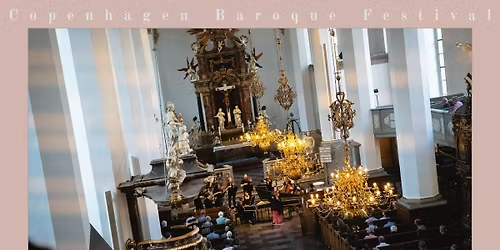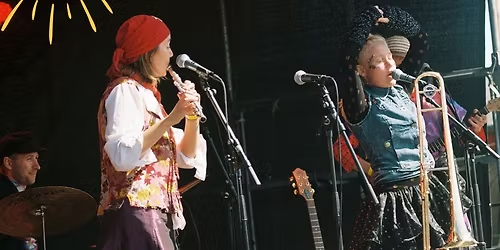
Advertisement
The event is free to attend. Sign up in advance here: https://cape.ku.dk/eng/calendar/2025/generative-listening/ A Good Listener Knows That Knowledge is Everywhere, And. –– A Spiral Lecture in the Context of Applied Ecologies
Applied Ecological Listening #1.
Part of a workshop and lecture series in three iterations with Daniela Medina Poch, Mark Peter Wright and Tim Rudbøg respectively, facilitated by Bureau for Listening.
–
How does a spiral work?
A spiral is a circular form that evokes movement.
Movement is usually conceived linearly, but there is also movement in undulations.
Something interesting about a spiral is that there are adjacent relations, but also transversal and diagonal ones. The inner undulation meets the outer one; in this way, the spiral is, somehow, a transtemporal device.
There are generally two ways to navigate a spiral: from its core to its outer layers, or from the outer layers toward its core - but perhaps there are many more.
You will listen to an expanded range of references, you might feel lost. Bear with uncertainty.
Throughout this spiral, we will navigate different dimensions of listening: moving from the atmospheric, the speculative, and the bodily, to counter-extractivist and counter-surveillance kinds of listening, and into the relational, reciprocal, and generative.
In the end, a call to the feast –– a shared harvest, and a tribute to the wind, the ultimate listener.
By Daniela Medina Poch and the winds of Amager Fælled.
–
Applied Ecological Listening is a three-part series of outdoor workshops and lectures that invites artists, researchers, and members of the public to explore listening as an embodied and situated ecological practice. Hosted at Amager Fælled—a now protected natural area shaped by a layered history of military use, landfilling, and ongoing care and struggle—the programme unfolds within a landscape that embodies the call to explore listening in search of a reorientation toward ecological transformation, resistance, and resilience.
The programme asks: how might we listen differently in a time of climate crisis and ecological transformation? What kind of applied ecological listening does our time require? How can we cultivate a mode of attention attuned not only to what is voiced and sounding, but also to what is silenced, omitted, or unheard? Applied Ecological Listening is an invitation to shift the dominant logics of perception—away from extractive seeing, knowing, and naming—toward a practice of being-with, sensing-with, and listening-with the entangled worlds we inhabit.
Through a series of field-based and experimental lectures, workshops, and collective reflections, the series approaches listening not only as a sensory mode, but as a critical method for attuning to the complex entanglements of ecological life—practicing listening as a way of noticing relations across species, histories, and material traces; of sensing what is present, what is not known, and what is yet to be heard.
Over the course of the series, Bureau for Listening will facilitate the gathering and production of various outputs and forms of documentation, in collaboration with the invited ‘speakers’ and participants—for example, an Applied Ecological Listening Manifesto, listening prompts, and poetic fragments—which will be published at the end of the series.
Daniela Media Poch
Daniela Medina Poch (b. Bogotá) is an artist, author and _____. Working from an counter-extractivist perspective, her practice explores unofficial histories, non-hegemonic forms of knowledge, and systems of reciprocity to reimagine kinship, governance, and interspecies alliances. She has cultivated long-term collaborations with riverine, oceanic, and estuarine waters, wild plants, and polluted soils across diverse ecosystems in Abya Yala and Europe, harvesting hybrid communication protocols. Medina Poch works site-specifically and relationally, engaging with expanded listening practices, installations, performance and experimental lectures. Her interests lie in processes that emerge from—and ultimately exceed—artistic approaches.
Medina Poch currently works for the Live Programme Team at Gropius Bau in Berlin. A Goldrausch fellow (2023) and nominee for the Rainer Wild Prize (2025), she has presented her work at institutions and events including MUDAM, Luxembourg (2025), The I Listening Biennial, Berlin (2021), the XXII Cerveira Biennial, Portugal (2022) TBA21 Academy, Ocean Space Online (2022) and documenta fifteen, Kassel (2022). Her work is part of the permanent collections of MAMBO, Bogotá and the digital collection of the Museum of Historical Memory of Bogotá. Daniela Medina Poch is founder of the climate justice platform Embodied Climate Agency.
Bureau for Listening
Bureau for Listening is an artist- and research-led platform investigating listening as a critical, empathic and artistic practice. Operating nomadically and transdisciplinarily, the Bureau works across sound, philosophy, and performance.
Its projects explore how listening can unsettle dominant knowledge systems and open spaces for collective inquiry, care, and attentiveness. Through experimental methods and collaborative formats, the Bureau approaches listening not merely as a sensory act, but as a situated and transformative mode of relation.
Bureau for Listening initiates and curates workshops, public programs, research gatherings, and publishing projects, often in collaboration with institutions and informal networks. It is a partner in organizing the Copenhagen manifestation of The Listening Biennial.
The Listening Biennial
The Listening Biennial is an international artistic and research initiative that highlights listening as a relational capacity—a philosophical, political, creative, and research-driven practice .
The Biennial operates as a decentralized global platform, commissioning audio works, performances, and discursive programs across cities. Embracing radical empathy, ecological attunement, sonic storytelling, and interspecies dialogues, it asks: how can listening dismantle exclusion, human exceptionalism, and entrenched power structures?
Since its launch in 2021, The Listening Biennial has grown through local “manifestations” with partner venues and institutions. It also runs the Listening Academy, a series of workshops and seminars on listening as creative practice, in cities like Berlin, Delhi, Hong Kong, and Skopje.
Under a network of artists, curators, scholars, and collectives, the Biennial fosters an ecology of attention, encouraging participatory, attuned, and diverse listening cultures worldwide.
Details
Time: 3 Sept. 2025, 15:30-17:30
OBS: Please arrive in good time, as it takes up to 15 minutes to walk from the metro to the site inside Amager Fælled.
Place: Amager Fælled, meeting point along one of the main paths close to the little northern lake, please meet at the coordinates: (55.6584120, 12.5807368). At Island Brygge metro st. there will be someone with a flag saying: LISTEN, who can provide guidance.
To bring: A bottle of water, and clothing according to the weather as we will be outside.
Organizer: Center for Applied Ecological Thinking (CApE) and Bureau for Listening The event is part of The Listening Biennial programme in Copenhagen running through September and October.
Advertisement
Event Venue & Nearby Stays
Læderstræde 20, 1201 Copenhagen, Denmark, Læderstræde 20, 1201 København K, Danmark, Copenhagen , Denmark
Tickets










